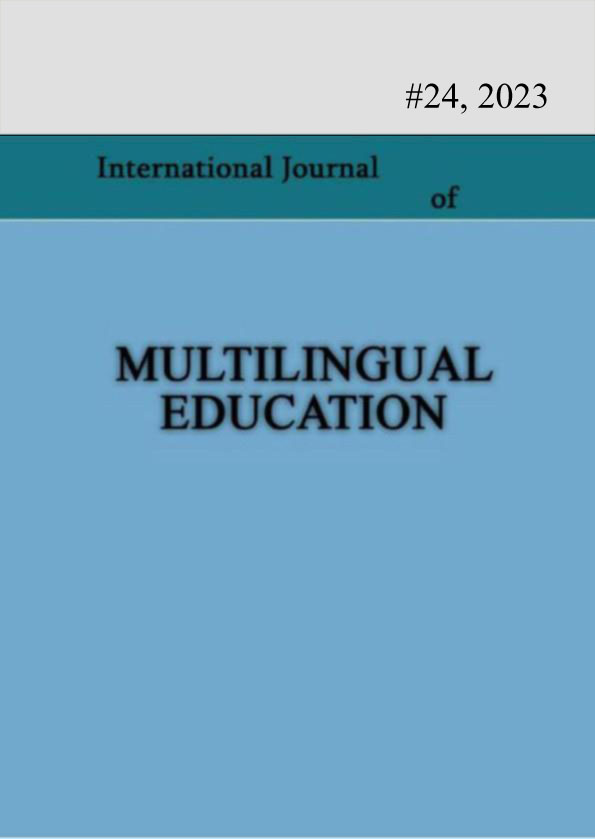Difficulties in learning a second language and ways to overcome in pupils with dyslexia
Keywords:
reading, dyslexia, difficulties in learning-teaching a second language, strategiesfor learning a second language.Abstract
Ability to read in an L2 is complicated because it involves not only the ability to read but also the knowledge of and the ability to use the second or foreign language”(Rolf&Glenn,2016.). This difficulty is even more acute in our country, since there is no high awareness of dyslexia, and so far reading difficulties can be considered as laziness on the part of teachers or parents. Taking everything into account, it can be assumed that students with dyslexia remain in conditions of even less support in learning a second language-on the one hand, their difficulty is not assessed appropriately, and on the other hand, they are not properly supported in the learning process.
Reading is a dynamic and complex process. In the process of reading, an adult is aware only of the content of what has been read, and the psychophysiological operations preceding it are carried out unconsciously, by themselves, automatically.(Learner,1997).Reading skills develop with age and experience. At the very beginning we learn to read, and only afterwards we learn by reading. Therefore, reading is of great importance for the development of a person, and the lack of this skill automatically causes difficulties on the path of personal success. Delay, impairment in reading are synonymous and, according to ICD-10(International Classification of Diseases)-F81.0 are identified as a specific reading disorder (dyslexia). (Gagoshidze,2007).
Dyslexia, regardless of the language we learn to read, is characterized by difficulties with accurate and/or fluent word recognition and by poor spelling and decoding abilities. Secondary consequences may include problems in reading comprehension and reduced reading experience that can impede growth of vocabulary and background knowledge(IDA,2002). Research shows that these difficulties vary by age, language characteristics, and learning strategies, but they still apply to second language learning. Moreover, it creates even greater difficulties.
References
Arries, (1999). “Learning Disabilities and Foreign Languages: A Curriculum Approach to the Design of Inclusive Courses”.
Brevik, L. M., Olsen, V. R., Hellekjær, G. O., (2016). “The complexity of second language reading: Investigating the L1-L2 relationship”.
British Dyslexia Association (bdadyslexia.org.uk): International Dyslexia Association - …until everyone can read! (dyslexiaida.org)
Cappelli D., (2021). “Dyslexia in L2learning: comparison between languages and linguistic anxiety”.
Cochrane, K., Saunders, J. And Saunders K., (2012). Abridged Version Edited by Katrina Cochrane, Joanne Gregory and Dr Kate Saunders, “Dyslexia Friendly Schools Good Practice Guide “.
Gagoshidze T. (2007). „Child developmental disorders“. Tbilisi
Helland, T. & Morken, F. (2016) “Neurocognitive Development and Predictors of L1 and L2 Literacy Skills in Dyslexia: A Longitudinal Study of Children 5–11 Years Old”.
Knudsen L., (2012). “Dyslexia and Foreign Language Learning”.
Learner, J. W. (1997). “Learning Disabilities, Diagnoses and Teaching Strategies”. U.S.A. Houghton Mifflin Company).
Downloads
Published
How to Cite
Issue
Section
License
Copyright (c) 2023 Maia Shashviashvili, Manana Melikishvili

This work is licensed under a Creative Commons Attribution-NonCommercial 4.0 International License.
Copyright (c) - Authors who publish with this journal agree to the following terms: Authors retain copyright and grant the journal the right of first publication with the work simultaneously licensed under a Creative Commons Attribution-Noncommercial 4.0 International License, which allows others to share the work with an acknowledgement of the work's authorship and initial publication in this journal. Authors are permitted and encouraged to post their work online (e.g., in institutional repositories or on their personal website) prior to and during the submission process, as it can lead to productive exchanges, as well as earlier and greater citation of published work (see The Effect of Open Access). Authors may enter into separate, additional contractual arrangements for the non-exclusive distribution of the journal's published version of the work (e.g., post it to a repository or publish it in a book), with an acknowledgement of its initial publication in this journal.

